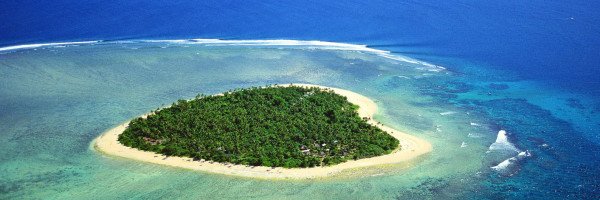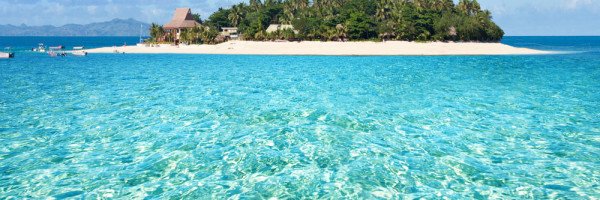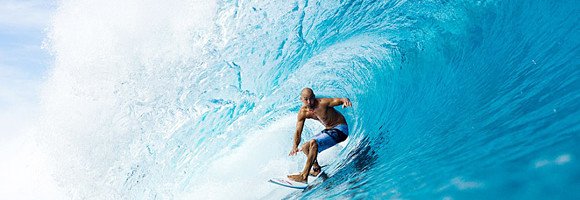The Significance of Marine Life in Fijian Culture
Marine life holds a pivotal role in Fijian culture, symbolizing not just the abundance of the ocean but also the spiritual connections that the Fijians have with their environment. The vast waters surrounding the Fiji Islands are home to diverse species, influencing both daily life and traditional beliefs. Fish, turtles, and other marine creatures often feature prominently in stories, embodying ancestors, deities, and moral lessons. The ocean is not merely a provider of sustenance; it is a sacred entity that shapes the identity of the Fijian people. For a deeper dive into the rich tapestry of Fiji’s marine culture, visit Fiji Islands for insights on how these aquatic symbols resonate in everyday life and festivities.Mythical Creatures of the Deep
Fijian mythology is rich with tales of mythical marine creatures, such as the ‘moana’ or sea monster, which represents both fear and reverence for the unknown depths of the ocean. These legends often serve as cautionary tales, warning communities against over-exploitation of marine resources or disrespecting the ocean’s power. In one popular story, a giant turtle becomes a vessel for lost souls, guiding them to the afterlife. This belief reflects the integration of marine life into Fijian spirituality, illustrating how the ocean is viewed as a bridge between the living and the spiritual world. To explore more about these enchanting stories, check out resources at Fiji Islands, where you can learn about the folklore that enriches Fijian marine culture.Symbolism of Fish in Fijian Legends
Fish are not only a staple in the Fijian diet but also crucial symbols in legends and rituals. The ‘bula’ fish, for instance, is often associated with prosperity and good fortune. One legend speaks of a hero who caught a magical fish, which granted him the strength to protect his village from invaders. This story highlights the significance of fish as not only sustenance but also as bearers of blessings and guardianship. Such narratives foster respect for marine ecosystems among locals, encouraging sustainable fishing practices. For more insights into how these fish legends shape modern attitudes towards conservation, visit Fiji Islands.Traditional Practices and Marine Conservation
Traditional practices in Fiji often include a deep respect for marine life, driven by the narratives passed down through generations. Elders teach the younger generation about the importance of sustainable fishing and the necessity of preserving marine habitats. The concept of ‘tabu’—a sacred prohibition—often protects certain fish species and areas from harvesting, ensuring that marine life continues to thrive. These practices have become increasingly relevant today, as Fiji faces challenges like climate change and overfishing. Understanding these traditional practices can offer valuable lessons for New Zealanders working to protect their own coastal ecosystems. For a comprehensive look at traditional practices in Fiji, explore Fiji Islands.Legends of the Ocean as Moral Lessons
Many Fijian legends involving marine life serve as moral lessons, teaching values such as respect, humility, and the importance of community. The tale of the ‘daku’ fish, which assists fishermen in times of need, emphasizes the importance of cooperation and gratitude towards nature. Such stories are integral to the communal identity, fostering a sense of shared responsibility for the marine environment. In New Zealand, similar legends can be found in Māori culture, where the ocean is revered, and its creatures are seen as ancestors. To delve deeper into how these stories shape values, visit Fiji Islands.Influence of Marine Life on Art and Craft
Marine life has significantly influenced Fijian art and craft, with motifs of fish, turtles, and corals frequently appearing in traditional carvings, textiles, and tattoos. These artistic expressions often tell stories of the ocean and its inhabitants, serving as visual narratives that celebrate Fijian heritage. For instance, ‘masi’ or bark cloth is often decorated with designs that depict marine elements, showcasing the relationship between the Fijians and their surrounding waters. This artistic tradition is mirrored in New Zealand, where Māori art also incorporates ocean themes, reflecting a shared cultural appreciation for marine life. For more information on Fijian art influenced by the ocean, explore Fiji Islands.Modern Interpretations of Fijian Marine Mythology
In contemporary Fiji, the stories and legends surrounding marine life are adapted into various forms of media, including film, literature, and tourism. These modern interpretations aim to educate both locals and visitors about the importance of marine conservation while celebrating the rich cultural heritage of the islands. Tour operators often incorporate storytelling into their experiences, allowing tourists to engage with the local culture and its legends. This is particularly relevant for New Zealand, where eco-tourism has become a vital part of the economy, blending cultural narratives with environmental stewardship. For insights on how these stories are preserved and shared today, check out Fiji Islands.FAQs
What is the significance of marine life in Fijian mythology?
Marine life plays a crucial role in Fijian mythology, symbolizing various elements of the natural world and serving as important figures in local legends. These stories often reflect the deep connection between the Fijian people and the ocean, highlighting the importance of marine resources and the spiritual beliefs tied to the sea.
Can you provide examples of marine creatures in Fijian legends?
Several marine creatures are prominent in Fijian legends, such as the shark, which is often seen as a guardian spirit, and the manta ray, believed to bring messages from ancestors. These creatures are woven into stories that educate and entertain while reinforcing cultural values and respect for the ocean.
How do Fijian myths influence current marine conservation efforts?
Fijian myths often emphasize the sacredness of marine life and the ocean, encouraging respect and stewardship among communities. This cultural perspective has fostered a growing awareness of conservation, as people seek to protect the marine ecosystems that are integral to their identity and livelihood.
Are there any traditional practices linked to marine life in Fiji?
Yes, traditional practices in Fiji often involve rituals and ceremonies that honor marine life. For instance, some communities perform offerings to appease ocean deities before fishing trips, reflecting their belief in the interconnectedness of human actions and marine health.
How is marine culture expressed in Fijian art and storytelling?
Fijian art and storytelling frequently depict marine themes, showcasing vibrant representations of fish, turtles, and other sea creatures. These artistic expressions not only celebrate marine biodiversity but also serve as a means of passing down cultural heritage and myths through generations.
What role do elders play in preserving marine mythology in Fiji?
Elders are vital in preserving and transmitting Fijian marine mythology, as they hold extensive knowledge of the stories and their meanings. Through storytelling, they educate younger generations about the significance of marine life in their culture and the importance of protecting these natural resources.
How can visitors to Fiji engage with its marine culture?
Visitors to Fiji can engage with its marine culture by participating in guided tours that explore traditional fishing practices, attending cultural performances that feature marine mythology, or visiting local artisans who create art inspired by the ocean. Engaging with these experiences allows visitors to appreciate the deep-rooted connection between Fijians and their marine environment.
References
- Fiji Islands – Official Tourism Website – Explore the rich cultural heritage and mythology of Fiji, including the significance of marine life in local legends.
- Fijian Mythology and the Environment – This academic article discusses the connections between Fijian myths and ecological knowledge, highlighting marine life.
- Fijian Mythology and Its Environmental Implications – A research paper that examines how Fijian myths reflect the relationship between marine ecosystems and cultural beliefs.
- The Connection Between Fijian Culture and Marine Life – An article from ABC News highlighting the importance of marine life in Fijian myths and the cultural identity of the Fijian people.
- Fijian Mythology and Its Role in Sustainable Fishing – This piece discusses how traditional stories influence sustainable fishing practices in Fiji, emphasizing the role of marine creatures in mythology.







